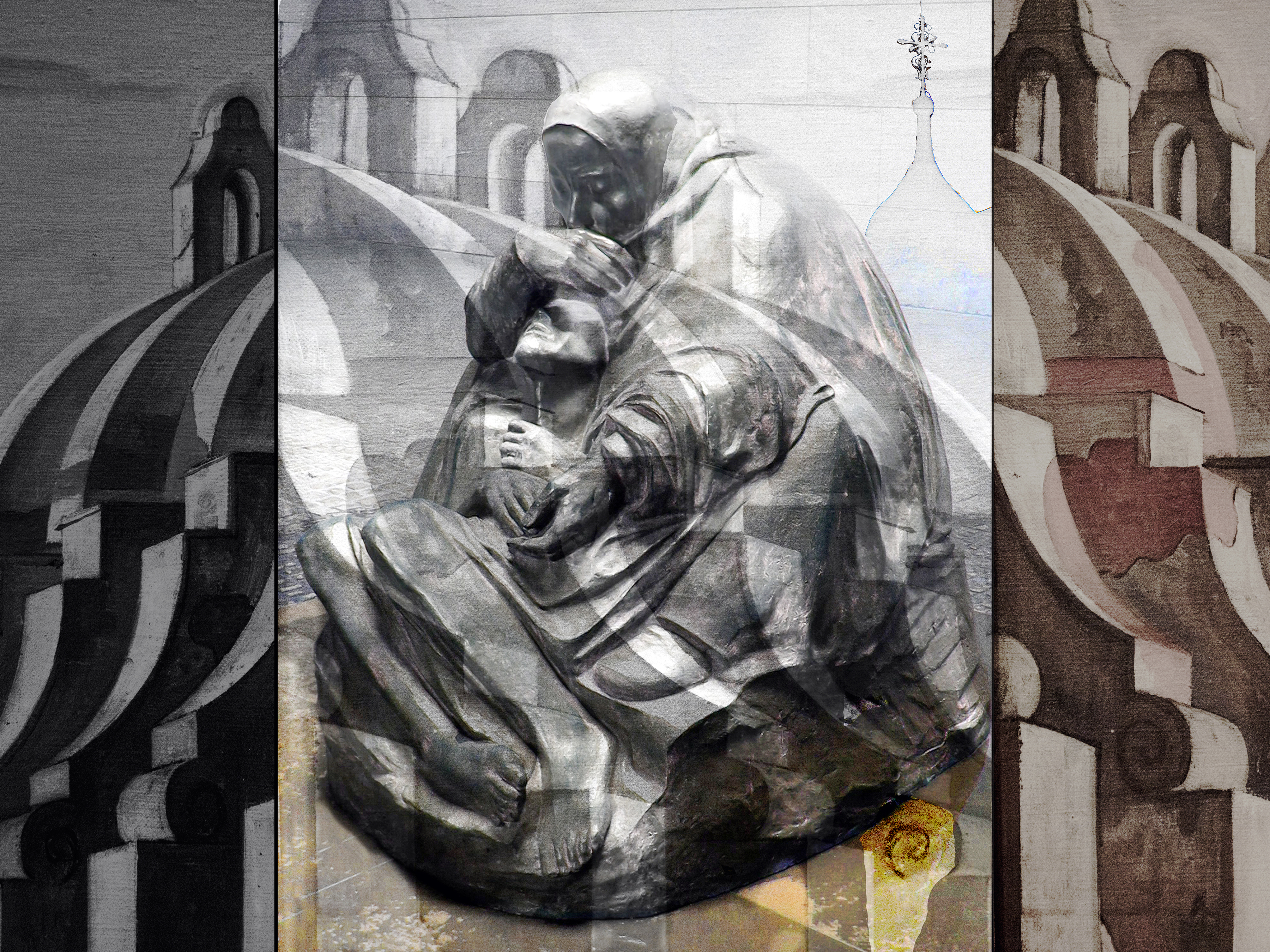The poem below was written this year in obvious response to what’s lurking. Volodymyr Dibrovar is a scholar at Harvard’s Ukrainian Research interview, historian Timothy Snyder was the translator. Dibrovar is a writer, translator and literary critic, a laureate of the Mykola Lukash Award in Translation for his translation of Samuel Beckett’s “Watt” (1991) and the Ukrainian BBC Book of the Year Award for his novel “The Andriivskyi Descent” (2007.)

I am posting it not to feed the increasing depression I see rising in myself and many around me, but because I think it speaks to something larger than the horrors of war alone. The sulphur fumes of a desire to annihilate born out of contempt and clinging to power are spreading everywhere, nationally and internationally. I write this after the Hungarian and before the French election this weekend, and cannot but wonder why fascism is even allowed at the doorstep, much less across it.

My photomontages today were work commissioned byThe North Coast Chorale in Astoria for a 2016 concert performance of Karl Jenkins’ The Armed Man – a mass for peace (which in turn was dedicated to the victims of the Kosovo conflict.) The music uses the structure of a catholic mass, but is filled with diverse, surprising and moving texts from all kinds of sources.

As it unfolds it brings the listener closer and closer to the devastation wrought by war, the emotional emptiness and trauma that comes with loss and being a victim as much as with being part of the perpetrating forces. It ends with appeals to hope, with a belief that we can and must pursue peace and that memory of the suffering must be kept alive to avoid repetition of warfare.

Look!
The barrier between us and the netherworld. We don’t usually see it. Why should we pay attention? Our cares are heavy enough already.
But something has happened.
Do you see?
The membrane is broken, a miasma of lies and hatred flows out. It drains will and reason from the weak. Even the strong are in shock.
It seems to defy the laws of physics
It is what it is, look out.
Toxic, not to be touched, not yet named. And that’s our problem.
What is unnamed escapes unpunished.
Where’s our word for spasmodic contempt and blinding annihilation?
For a lie so thick it absorbs every truth?
Search. To name is to know.
That is the only rule.
Of our only game.
Volodymyr Dibrova, (2022) Translated by Timothy Snyder.

***
Дивися!
Ось той невидимий кордон, який захищає нас від потойбічного світу. Тому ж ми його і не бачимо. Нащо він нам? Ми й без нього ледве даємо собі раду.
Але щось сталося.
Бачиш?
Загата розірвана, і з рани цебенить суміш ненависті та брехні. В слабаків вона відбирає розум і волю. Сильних вкидає у шок.
За законами фізики такого не може бути.
Але так є.
Обережно!
Це – дуже токсична субстанція. Її не можна торкатися. Тому вона й досі не має назви. І в цьому проблема.
Усе, що не названо, вислизає й лишається непокараним.
Де ж нам знайти влучне слово для корчів ненависті та бажання нищити все на своєму шляху?
Або для брехні, настільки щільної, що її не можна розчинити ніякою правдою?
Шукай!
Хто знає ім’я, знає все.
Це – головна умова цієї гри.
Іншої гри в нас немає.
(Volodymyr Dibrova, 2022)

Here is Karl Jenkin’s Armed Man

